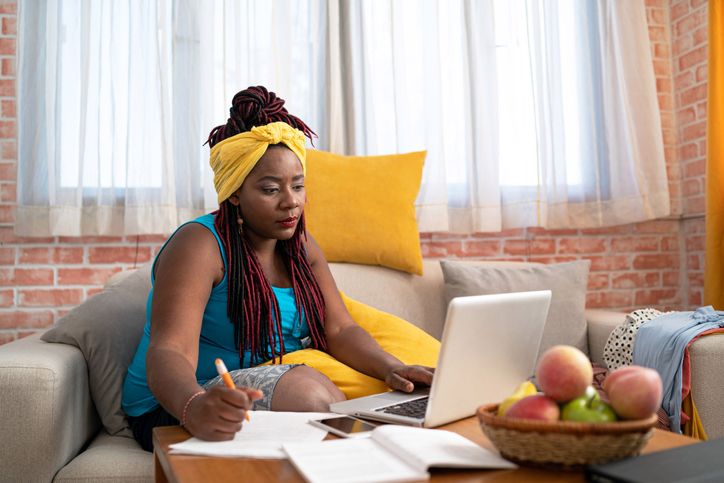Study: Working From Home A Mixed Bag For Black Workers
Source: milan2099 / Getty
Working from home can be a blessing or a curse depending on who you ask. In normal times, working from home can lead to decreased stress and provide a greater work-life balance.
But working from home during the COVID-19 pandemic has its own challenges. Two recent reports indicate that work from home has been a mixed bag for Black workers.
On the one hand, Black workers report greater freedom from workplace microaggressions. The New York Times pointed to a Slack survey showing that 97% of Black workers surveyed wanted to either remain at home full time or try a hybrid model.
Courtney McCluney, an assistant professor of organizational behavior, told the New York Times she was not looking forward to going back to work in person.
“This was the first year that I haven’t had my hair commented on and touched without permission in my professional life,” she said. “I actually like not having to go into the office and be constantly reminded that I’m the only Black woman there.”
For some workers, the rapid shift to working from home brought in-person microaggressions to the online world. Business Insider’s Voices of Color ran an article highlighting the challenges of working from home for Black workers, including the need to code-switch.
Jodi-Ann Burey smiled frequently during her pitch, mentioned her goldendoodle, and laughed off a microaggression.
“I needed to become a different person,” she said.
Code-switching at home takes an emotional toll on Black professionals. https://t.co/RVq5LaozID
— Voices of Color (@VOCInsider) June 29, 2021
While code-switching is not new, most people leave it at the workplace and can be themselves at home. The Voices of Color article highlighted the added stress of having to be “on” while at home can take its toll on Black workers.
The Economic Policy Institute found that Black workers were less likely to work at home than their white and Asian counterparts. It’s estimated that only about 20% of Black workers can work from home. Black workers are also less likely to work from home regardless of education level.
Fatigue and stress from the pandemic have impacted all workers. Work from home burnout has increasingly become an issue, with people of color, women, and caregivers bearing the brunt.
Online life adopted during the crisis may not have adequately implemented practice conducive to a positive work environment. A study from McKinsey found Black women felt the least supported by their managers.
Earlier this year, the Harvard Business Review indicated that Black and Latino workers were more likely to fear losing their jobs. Coupled with less interaction with their peer network, working from home can also be isolating.
Working from home can be a great opportunity for workers, but employers need to check in with staff and implement mechanisms that provide a supportive environment.
SEE ALSO:
Racial Juvenile Detention Disparities Worsened During the Pandemic, Survey Finds
[ione_media_gallery id=”4114365″ overlay=”true”]

